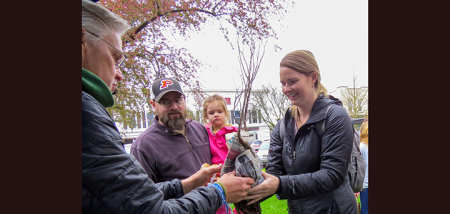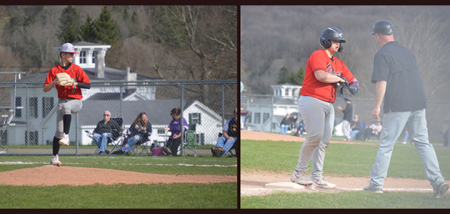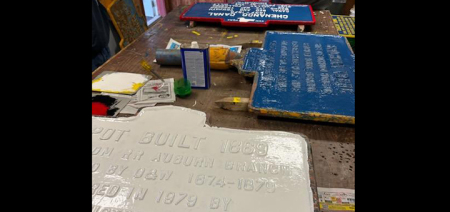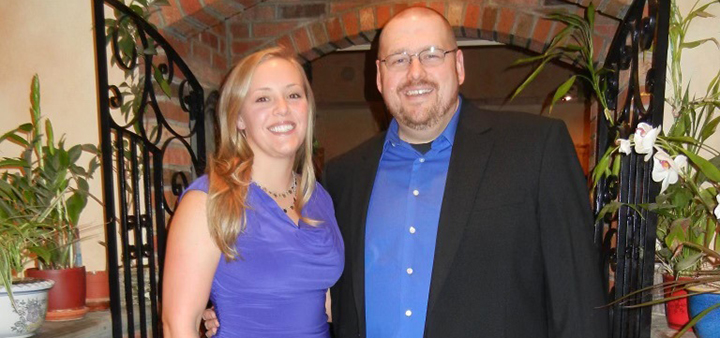The Democrats’ Secret Weapon
Published:
October 10th, 2014
By:
Steven and Cokie Roberts
Bill Clinton campaigned in Arkansas this week, focusing on college campuses and urging students to support candidates like Mark Pryor, one of the most endangered Democrats in the Senate. At each stop, staffers scurried through the crowds, gathering email addresses and cellphone numbers that could be used to mobilize voters on Election Day.
"You don't have the luxury of staying home," the former president intoned at Arkansas State in Jonesboro, "so I'm pleading with you: Vote."
In Wisconsin, where Democrat Mary Burke has a shot at deposing the Republican governor, Scott Walker, Michelle Obama struck a similar theme aimed at young women and blacks.
"When we stay home, they win," she told a large crowd at a Milwaukee convention center.
This is a hard year to be a Democrat. Every voting model gives Republicans at least a 3 in 5 chance of winning the six seats they need to control the Senate for the rest of Barack Obama's presidency.
Second-term presidents almost always lose allies in Congress during off-year elections. Obama's favorable rating hovers at a dismal 42 percent nationally, but it's even worse in crucial battleground states like Arkansas (34 percent) and Louisiana (37 percent).
And Republicans are more motivated than Democrats. According to a recent Gallup survey, 32 percent of respondents say they'll be voting to oppose the president while only 20 percent see their ballot as a message of support for Obama.
Still, this election is not quite over. If the Democrats have any chance at all of retaining the Senate -- and it's a slim one -- their hopes rest on galvanizing their own voters in Jonesboro and Milwaukee and countless other communities. One by one. Door by door. Cellphone by cellphone.
As union organizer Joan Zeiger told the New York Times at Michelle Obama's rally: "The biggest fear of the Republican Party is high turnout."
She's right, and that fear has come true before. Two years ago, Mitt Romney was absolutely convinced he was going to win. On Election Day, he was drafting an acceptance speech while his aides were organizing transition teams and planning fireworks displays.
Romney lost for many reasons, but one of the biggest was his failure to anticipate the effectiveness of his rival's turnout machine. The Democrats had invested heavily in local organizers and advanced technologies that maximized their ability to contact and motivate voters.
"We went into the evening confident we had a good path to victory," one Romney adviser told CBS. "I don't think there was one person who saw this coming."
Now, 2014 is not 2012. For one thing, Republicans have learned from their failure and copied the Democrats' strategy. As one conservative activist told the Washington Post, "People used to make fun of President Obama's background, but community organizing works."
For another, key Democratic constituents -- racial minorities, young people, single women -- are difficult to motivate in off-year elections. "A lot of Democrats don't vote during midterms," Obama told a party gathering last winter. "We just don't."
Here's where the Democratic turnout machine could again make a difference. The New York Times did an in-depth analysis of campaign expenditures and concluded, "Democrats are making much greater investments in the ground game than Republicans."
A Times poll, conducted with CBS and YouGov, reflected the impact of that investment. "More voters have been contacted by Democratic than Republican campaigns in every state but Kansas and Kentucky, where Republican senators fought competitive primaries," the paper reports.
One example is Iowa, where an open Senate seat has turned into a tight race between Democrat Bruce Braley and Republican Joni Ernst. The latest figures show Democrats with 148 paid staffers in the state, compared to 11 for the Republicans.
Another example is Alaska, where the Democrat, Sen. Mark Begich, is fighting for his life. The Washington Post reports, however, that Begich has a "secret weapon: an expensive, sophisticated political field operation that reaches into tiny villages along rivers and in mountain ranges throughout the vast Last Frontier."
"We have knocked on every single door in rural Alaska," Begich said. "This is unbelievable. No one's ever done it like this -- ever."
So he discounts polls that give Republican Dan Sullivan an edge. "I don't care if we're up or down," he says. "We're winning on the ground because we will turn out more voters."
Is he right? Probably not. But if the Democrats pull an upset, in Alaska and elsewhere, their "secret weapon" will be the main reason.
Comments







